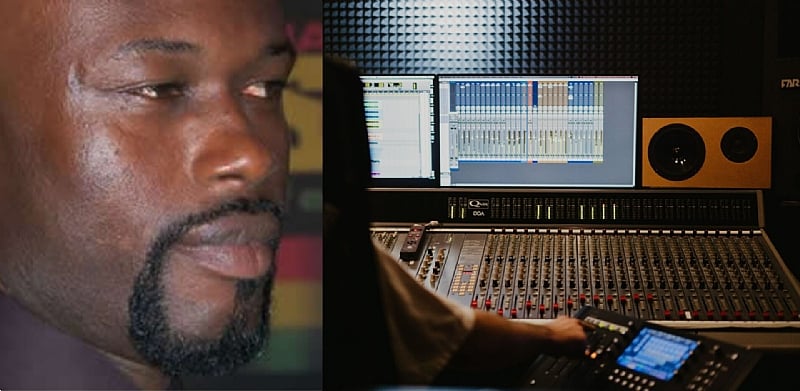The Ghanaian hiplife music scene has witnessed a significant evolution in its production techniques, and veteran artist C-Zar has voiced his observations on the changing dynamics between artists and sound engineers. C-Zar, known for his hit track “Araba Lawson,” expressed his concern over what he perceives as a shift in the cost and work ethic of sound engineers in the current music landscape. In an interview with Dj Qwequ on Ahomka 99.5 FM, he reflected on the past era of music production, contrasting it with the present, noting a marked difference in both the effort exerted by engineers and the fees they command.
C-Zar reminisced about the meticulous and labor-intensive processes that characterized the work of sound engineers during his earlier years in the industry. He described a period where mixing and mastering were entirely manual operations, requiring significant patience, skill, and dedicated effort. Engineers would painstakingly manipulate sound elements, meticulously crafting the final product. This manual approach, while demanding, fostered a deep understanding of the nuances of sound and a commitment to achieving sonic excellence. C-Zar’s recollections paint a picture of a time when the engineer’s role was deeply intertwined with the artistic process, demanding a high level of technical expertise and a dedication to perfecting every detail of the recording.
In stark contrast to the past, C-Zar highlighted the impact of technological advancements on modern music production. He observed that the advent of digital audio workstations and sophisticated software has streamlined the production process, significantly reducing the manual labor involved. The automation of many tasks, he noted, has made the engineer’s work less physically demanding and time-consuming. “Everything is programmed now,” he remarked, emphasizing the shift towards a more automated, less hands-on approach. While acknowledging the benefits of these technological advancements in terms of efficiency, C-Zar also implied a potential downside: a perceived decrease in the level of engagement and meticulousness previously associated with the craft.
The crux of C-Zar’s concern lies in the perceived imbalance between the reduced workload facilitated by technology and the increasing fees charged by sound engineers. He expressed his bewilderment at the current pricing structure, stating that engineers now charge significantly more than their predecessors, despite the comparative ease and efficiency of modern production techniques. “They will charge you more money now than you would have to pay back when the engineer put in more work,” he pointed out, suggesting a disconnect between effort and remuneration. This observation raises questions about the perceived value placed on the engineer’s expertise in the digital age. While technology has undeniably simplified many aspects of the process, the role of the engineer remains crucial in shaping the final sound and ensuring a high-quality recording.
C-Zar’s perspective prompts a broader reflection on the evolving landscape of music production. The shift from manual to digital processes has undoubtedly revolutionized the industry, making it more accessible and efficient. However, the transition has also raised questions about the value and compensation of skilled labor in a technologically driven environment. While C-Zar’s comments focus specifically on the Ghanaian music scene, they resonate with broader discussions about the impact of technology on creative industries worldwide. The balance between leveraging technological advancements and recognizing the continued importance of human expertise remains a central challenge.
Ultimately, C-Zar’s reflections invite a nuanced discussion about the changing dynamics between artists, engineers, and technology in music production. His observations challenge the industry to consider the implications of technological advancements on both the creative process and the economic realities of music making. While acknowledging the benefits of efficiency and accessibility, it is crucial to also address the concerns surrounding fair compensation and the preservation of the artistry and dedication that have always been integral to the creation of high-quality music. The ongoing conversation about the evolving role of the sound engineer in the digital age is essential for ensuring a sustainable and equitable future for the music industry.


